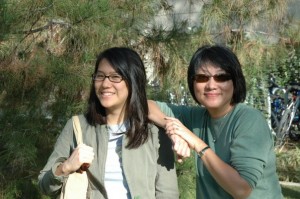I think I discovered why I could never finish cleaning out my piles . I stop to read, and now to write about what I read.
. I stop to read, and now to write about what I read.
So it is that I ran into a little green booklet titled “A Time to Live” by Barbara Karnes, RN. Only it’s about dying. The booklet has been buried in a basket where I tossed all papers relating to our daughter Jessica’s health care, especially during her time in hospice. I hadn’t wanted to visit this basket since her death, but knew that I needed to sooner or later. And so my discovery led me to share. I hope you will allow me to share about this somewhat morbid subject.
I remember Jessica talking about feeling afraid. Here are some thoughts from Karnes, addressed to the terminally ill person:
“When it comes time to die, we are all going to be afraid to some degree. After all, none of us can remember dying before. Any time we do something new, it’s scary. All the fearful thoughts are normal…There comes a time when you’ll wonder, “Am I going to die today?” If you can ask that question then you are probably not going to die that day. The day that you die, you won’t ask and you won’t care. Being afraid to die has nothing to do with a belief in God. In fact, most of us are not afraid of being dead, we’re afraid of dying….”
I think she means that believers are not exempt from the fear of the process of dying, though we may not be afraid of death itself.
Somehow, feelings I had of being powerless to alleviate Jessica’s fear are soothed by those words.
She goes on to say, “Dying is very sad, but it doesn’t have to be bad. Death is normal and natural. In fact, life could be called a terminal illness. From the moment we’re born, we begin to die. The only difference between a healthy person and a seriously ill person is that the seriously ill person is reminded every day they aren’t going to live forever. The healthy person (and we really don’t know just how healthy anyone is) lives with the illusion that they are going to live forever.
It will never be OK to die…so don’t expect acceptance. We can, however, reach an understanding – an understanding that everyone dies, including ourselves. With that understanding, perhaps we can accept our gift – our gift of time….It isn’t until we begin to lose something that we find its true worth….You have been given the time now, each day, to focus on what has real meaning for you.”
Then she says something I actually heard Jessica say, with different words, of course. “Dying a gradual death makes us the fortunate ones. We have been given the opportunity to say I love you, to amend the mistakes…to say good-bye.” She ends with a quote from Ecclesiastes 3:1-9.
Jessica was given time to say her good-byes. That was actually a blessing, despite the pain.
On the subject of death and dying, there are superstitions and myths aplenty, and I don’t doubt that many think of the Bible’s teaching about death as such.
Regardless of what humanity might think, and as helpful as Karnes’ ideas are, it is after all not our place to establish our own dogmas. The King of the universe whose idea of the universe it is, has the sole say about life and death. Not only am I resigned to that fact, I am, when in the right frame of mind, quite in awe of it.
“It is appointed unto man once to die, and after this, the judgment.” Hebrews 9:27. Sobering thought not merely on which to ponder, but more so to form the basis for our living.
On thoughts dying to be shared
The topic of death and dying spans deep and wide and goes beyond the scope of this little blurb of mine. There are, however, thoughts I’m dying to share that are more of a personal nature. Thoughts that concern my daughter Jessica (July 27, 1987 – January 13, 2013) who met her appointment with death, albeit all too soon in our eyes.
I’ve been on a journey to discover about my daughter since her death. She had lived with us for 18 years, and then she left for college. During those 18 years, I was very much involved with her life. Now I am on a quest to discover those missing years of her life. Not that we didn’t connect during her college days. We did, but not nearly enough for a mom now missing her deceased daughter. You see, I thought I knew my daughter. But now, I really want to know her for who she really was.
In the summer of 2005, Jessica went to CGBC’s Ecuador mission’s trip. Her dad and I were vacationing in Canada. She came back to an empty house and a raging fever from a jellyfish sting. She could have called up her grandma for help, but instead she blogged about her experience. I recently found that post. I felt blessed to have read it, and to discover that she was impacted in a positive way by her suffering. From her subsequent post, she apparently shared my fears that those lessons gleaned from suffering might not stay. And for a few years during her college sojourn, it did appear on the outside that what she had learned did not quite stick.
April, 2009. She posted again, this time after her first cancer treatment. I was surprised to find her post to be about Ecuador. I was surprised she described that dilapidated island of Muisne as “Heaven on Earth.” As her mom, I am now taking the liberty to share what she penned on her blog back then.
“We took a boat ride at night a few years ago in Ecuador, around the island Muisne, and to the nearby islands. As the boat cut through the water, I noticed a thousand tiny lights in the ocean, where the water was being disturbed. It was as if the stars above were being reflected in the water. I stuck my hand over the edge of the boat and gently put it into the warm tropical ocean water. The tiny stars danced around my hand. Someone told me they were plankton, that they light up when disturbed in the water. Some sort of photochemical reaction, or something like that. It was beautiful. I imagined that heaven would look something amazing like that. — I’d like to return sometime to Muisne. It’s a small island just a mile off the coast of Ecuador. I imagine it used to be the Ecuadorian Hawaii, an old resort island, full of bright colors, happy travelers and warm memories. But all of that faded, perhaps sometime in the late 80s or so, when Ecuador fell upon hard political and economic times. There’s this road that quietly testifies of those harsh times. The main road runs across the island, about 2 miles. It’s paved on one side, and on the other side, it continues back towards the main part of the island, but suddenly stops. It is as if the island ran clean out of money. Muisne today still has traces of a bright past but it is overshadowed by poverty and a sense of stationary hopelessness. Most of the island inhabitants are old people or children. The young have left to find real jobs on the mainland or to seek better opportunities through education. Those left on the island are idle, with little or no source of income save the small corner markets, bakeries, and sidewalk shops that sell clothing and shoes. There are some things about this island that fascinate me. Perhaps it is the potential that [this] small island has, in spite of its current situation. [Perhaps it is] the fact that a bunch of islanders put on a “Save the Mangrove” rally, complete with torches on a barge just off shore, chanting hope and strength into the deep, dark night. [Or perhaps it is the] faith of those leading the school and church on the island, just blocks away from a street occupied by crackwhores. There is so much heartbreak and hope on that island.”
A few days before Jessica died, confined to her hospital bed, she told a friend how she missed seeing the stars. The friend brought over a night light which, when switched on in the dark, displayed little stars on the ceiling in her hospital room.
It was from that same room that Jessica had also requested that I read to her from Randy Alcorn’s book Heaven. As I read, she asked how she could repent when there’s no chance for her to live her life anymore. The answer that God obviously put in my mouth, that He was indeed more interested in our hearts than our actions, seemed to have placed a semblance of relief to her countenance. It was as if the Holy Spirit revealed to her what Hezekiah had prayed, “May the good LORD pardon everyone who sets his heart to seek God..” even for those who disobeyed. II Chronicles 30:18-19.
I didn’t see the message then, but now I see. They were a message for me. Stars, visible only in the dark, allowed me to see that the lessons gleaned from Ecuador, and cancer for that matter, never really left her. Lessons she and I might not otherwise have learned were it not for the darkness of suffering. I now see that she had been thinking about heaven in the midst of cancer, though I had not been so sure of God’s place in her life from the years of her straying from the Lord, struggling to match her walk with her talk.
I now truly see in my heart what I had known only in my head, that God is indeed a merciful God, full of grace and truth, receiving sinners like us into His bosom, possible only because His sinless Son was condemned in our place. And all it takes to be freed from the condemnation of a holy and just God is a heart of repentance, of turning from self to Himself.
And so, as painful as the dying process was to watch, and certainly to go through for our Jessica, I am comforted that the sovereign LORD, who numbers our days, nevertheless allows us to see glorious truths about Him, especially about His mercies – sometimes only visible through darkness and pain.
“Mom, in your sadness, do you not see the light amidst the darkness? Do you know that I see it too?” I had imagined my daughter saying that to me through the stars in the hospital room, echoing the truths that God has been impressing upon my own heart.
These then are some of the thoughts I’ve been dying to share.
______________________________________________________________
Karnes, Barbara. A Time to Live: Living with a Life-Threatening Illness. 1994. Print.

Thank you Anna for sharing with us. Truly the light of the stars, even if it’s a night light, illuminates who He is, and His patience and love for us, even in sickness, suffering and dying. Out of Jessica’s and your experience with the “light of the stars”, the dying provides the light of truth and a reason to live life with urgency and gratitude. Well spoken and very encouraging to us, may you continue to use the voice given to you, the words are wholesome and healing…
Thanks for your encouragement, John. You have no idea how much I needed to hear the words you shared. How humbling to know that my feeble words offer some healing words to others. It’s what drives me to write. Yet ultimately God’s great truths and His tender heart of compassion combine to heal our deepest wounds.